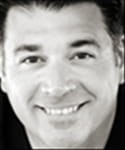Heresy Creep
- Published Apr 07, 2013
You’ve heard of things like “price creep,” right? Slowly, but surely, prices rise on something, or on things in general. It’s slow, but sure…a “creep.”
There is a growing phenomenon in many churches – particularly large, fast-growing evangelical churches - that can only be called “heresy creep.” No, not in ways easily spotted, like denying the work of Christ on the cross, or rejecting the infallibility of Scripture.
It’s more subtle than that.
For example, consider the historic, orthodox understanding of the Trinity: God is three Persons who are one God. Not three gods, but three Persons who are one God; God the Father, God the Son, and God the Holy Spirit.
This is not a peripheral idea, but one central to the Christian faith. It is who God is, and who He has revealed Himself to be in the Scriptures.
So what does it mean if a church does not think clarity on this doctrine is important? So much so that they bring in a guest speaker who, while famous and clearly talented, has a relationship with the doctrine that has been, to say the least, suspect? In other words, a speaker who is known for having views on the Person of God which are modalistic, not Trinitarian?
Modalism is the view that God is not three Persons, but a single Person who has manifested or revealed Himself in three “modes” or ways - as Father, or Son, or Holy Spirit. Typically it is presented with the different modes being tied to historical periods. For example, God manifested Himself as Father in the Old Testament, then as Jesus, and then as the Holy Spirit following the ascension of Jesus.
But, the modalist would say, He is not three-in-one.
This is a denial not only of the teaching of the Scriptures, but also centuries of settled orthodoxy in the church itself as presented by the most ancient creeds Christendom has manifest.
The danger is that the average attender considers a guest speaker at their church someone the church affirms. They then open their hearts and minds to the message (and the speaker) with little or no suspicion. If entertaining, they go on to listen to other talks, buy their books, and in the end, take them into their world as a primary influencer.
That is what I mean by “heresy creep.”
If you were to ask the church leadership, “Do you believe in the Trinity?”, you would no doubt hear an emphatic “Of course!” But when they use that vocabulary, are they employing a biblical dictionary? And even if they do, are they employing theological care with who they bring in to speak, the books in their bookstore, or the conferences they highlight?
Another example has to do with the health and wealth gospel. This is the idea that if you walk faithfully with Christ, and [usually] give to a particular ministry, you will be rewarded with “health and wealth” in return as a result of God’s blessing.
The “health and wealth” gospel has become widely decried, but much of its emphasis has been reintroduced by mainstream evangelical churches in the way it talks about faith, or the reward that comes with tithing. It may not be “health and wealth” but it sure does sound like “name it and claim it.” The idea of having "big" faith is that it will allow you to achieve whatever your dreams may be, and that, along with giving to your local church, will be the avenue to prevent terrible things from happening in your life.
The danger is that while God clearly does respond to faith, our faith is not a set of orders to God as if our faith says “jump” and God has to say, “how high?”. It’s not something to be presented as one would “positive thinking” or “achieve what you believe.” That’s nonsense, and has little to do with the sinews of faith.
Further, giving to the local church of which you are a part is something I firmly uphold as a command of Scripture, and I believe the Bible teaches clear blessing/reward attached to it. But the nature of that blessing can be any number of things. And the idea that if we don’t give, terrible things will happen to us, is a reverse form of “health and wealth” that seems intent on manipulating people into giving, which the New Testament knows nothing about. Yes, giving invites God’s involvement in that aspect of our lives, but the giving dynamic is not what keeps out, or let’s in, the demonic. It’s more about what invites in, or keeps out, God’s supernatural activity.
As Bonhoeffer had to differentiate between the nature and power of authentic grace, as compared to its counterfeit - what he called “cheap” grace, which was grace devoid of repentance - there is a need to talk of “cheap faith.”
Cheap faith is faith without sacrifice, without suffering, without deprivation, without selflessness. Authentic faith is faith that has little to do with what you get out of it, and everything to do with how God is glorified through it.
Such matters are subtle, to be sure.
But that’s the nature of heresy creep.
It just creeps in.
James Emery White
Editor’s Note
James Emery White is the founding and senior pastor of Mecklenburg Community Church in Charlotte, NC, and the ranked adjunctive professor of theology and culture at Gordon-Conwell Theological Seminary, which he also served as their fourth president. His newly released book is The Church in an Age of Crisis: 25 New Realities Facing Christianity (Baker Press). To enjoy a free subscription to the Church and Culture blog, log-on to www.churchandculture.org, where you can post your comments on this blog, view past blogs in our archive and read the latest church and culture news from around the world. Follow Dr. White on twitter @JamesEmeryWhite.



















